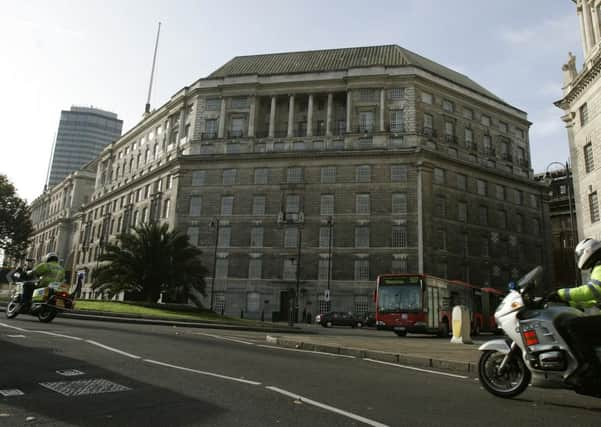UK ‘involved in rendition’ and torture


Sir Peter Gibson’s investigation found 27 areas that need further investigation in relation to interrogation, rendition and the way officers were trained.
British intelligence agencies witnessed mistreatment but were reluctant to raise concerns because they feared jeopardising relations with their international counterparts, the report said.
Advertisement
Hide AdAdvertisement
Hide AdIt also questioned whether the government could and should have done more to secure the earlier release of detainees from Guantanamo Bay.
The Gibson inquiry was axed this year after fresh criminal investigations were launched into allegations involving Libyan victims, but its validity had already been called into question when campaigners and human rights lawyers pulled out, claiming it lacked credibility.
Sir Peter yesterday published an interim report, with redactions for “national security”, setting out the case for the investigation to resume. It stated: “The inquiry would have wished to examine when the government came to understand the scope of the US policy and whether the government and its agencies responded adequately once they became aware of renditions or proposed renditions of British nationals and UK residents.
“There is an issue as to whether the government and the agencies may have become inappropriately involved in some cases of rendition, and whether an adequate policy was formulated and guidance issued to personnel, addressing the extent to which it was proper for the UK to support or assist renditions carried out by other countries.”
Cabinet minister Kenneth Clarke told MPs that the questions raised by the Gibson inquiry would now be addressed by the parliamentary Intelligence and Security Committee, (ISC) in a report due next year.In a statement to the House of Commons, Mr Clarke said the report painted a picture of government and agencies struggling to adapt to new realities faced in the wake of 9/11 and said it was a matter of “sincere regret” if “mistakes and failures were made”.
The inquiry also found that the UK government knew US officials were considering the use of Diego Garcia, an island in the British Indian Ocean territory, for holding or transporting detainees between November 2001 and January 2002. Documents found evidence of a “reluctance” to raise issues about treatment for fear of damaging work with other intelligence services.
The report added: “The documents show that there are some instances where UK officers continued to engage with detainees held by liaison partners in various locations after ill-treatment had either been witnessed or alleged and then reported to head office. In some instances it is not clear from the documents provided to the inquiry that anything was done following a concern raised by officers.”
During January 2002, officers were advised that, faced with apparent breaches of Geneva Convention standards, “there was no obligation to intervene” and they were told such conduct should be raised with the detaining authority only “if circumstances allow”.
Advertisement
Hide AdAdvertisement
Hide AdRather than await the outcome of the police investigation, the issues raised by Sir Peter would now be examined by the ISC, Mr Clarke told MPs.
Senior MP Andrew Tyrie denounced the decision as “a mistake”, pointing out that the ISC had already cleared the intelligence services of wrongdoing.
Liberty director Shami Chakrabarti said: “It’s pantomime season and the government joins in. The ‘judge-led inquiry’ that never was is shut down and investigating kidnap and torture in freedom’s name will be left to a watchdog that never barks and which exonerated the spooks six years ago.”